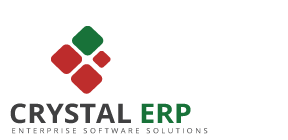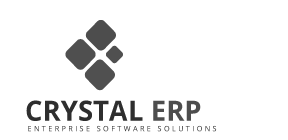There is far more to accountancy than compliance. And SMEs want far more from their accountants than just basic management accounts, VAT returns and tax returns. With the shift to online technologies, accountants now have real-time access to accurate, detailed client information – so don’t waste it. Accountants now have the perfect platform to exploit their financial knowledge to deliver the valuable business services and expertise SMEs want.
Check Box
It is unfortunately still true that many accountants remain focused on reactive, box-ticking activities. The provision of management accounts, VAT returns and tax returns is clearly an important service, but it is a passive one. It is based on simply sifting through data, from physical receipts to XLS files and data from accounting packages, and completing standard processes.
As a result, their financial expertise can be undervalued: accountants have an innate understanding of financial data, and they should use this to provide specialist insight. With an office, perhaps several offices, filled with people who are experts on a range of issues from tax to audit, wealth management to business planning, why are many accountancy practices sending a message to the SME that accountancy is little more than a compliance-driven exercise? It isn’t.
The stumbling block for the accountant is often understanding how to move from reactively ticking check boxes to pro-actively providing advice. Solid advice demands solid, up-to-date data. Now accountants have started to embrace online technologies because they provide access to real-time, high-quality data. The push towards this has also come from SME clients, as many growth-oriented companies have embraced the advantages of the cloud.
However, many have paused half-way between ticking boxes and providing advisory services: they offer online accounting software, but seem to be in the business of marketing the software rather than their own services. Why? Software is only a means to an end. It is a practice’s financial acumen that is, and has always been, the fundamental area of differentiation – and the online accounting model provides a cost effective way of delivering a broader range of services than commoditised tax returns.
Service Value
So how are accountancy practices going to evolve beyond compliance and exploit their financial acumen? The answer lies not only in creating a set of valuable services but in demonstrating to the SME the importance and value of their own data. Gaining in-depth understanding of their financial data is the key to insight that supports an SME’s critical business decision making, and this can only come from the knowledge within the accountancy practice.
Likewise, accountancy practices need to recognize the real opportunity the online model provides to reverse the decline in both value and perception, and take advantage of their ability to secure rapid access to a client’s financial data in order to provide insight and transform the range of services that can be delivered.
Yet rather than exploiting this opportunity to market financial expertise, practices remain primarily focused on gaining differentiation by actively promoting not only experience with traditional on-premise financial software but also the many online book-keeping solutions they can support. The result is that, instead of providing differentiation, many accountants’ web-sites appear more like a shop window for online software, when they might be a gallery for their own specialist services.
Own Brand
So how can accountancy practices follow the trend towards cloud-based solutions and find a way to stand out from the crowd? The key is to focus on the service, not the software. Rather than just selling online accounting in a software-as-a-service model, why not extend the model and build a practice branded, scalable, advisory service business that is differentiated and cost effective?
Offering the SME a practice-branded set of services that can be provided via the accountant’s own web-based book-keeping solution will change the clients’ perception – and create a differentiated offering in the market. The client logs in via the accountant’s web site reinforcing the brand and providing a great chance to up- and cross-sell additional services, such as business planning and wealth management.
Clients can still scan invoices or receipts into the solution and gain online access to the latest financial reports. They can opt to do as much or as little book-keeping internally as required, while still sharing and collaborating with the accountant on up-to-date financial information. The difference is that it is not the software determining the decision; it is the quality and range of services on offer.
What The Future Can Hold
As the economy begins to improve, a good accountancy practice should be an essential component of the SME business strategy. SMEs want business advice, and if the accountancy marketplace is to provide businesses with the services required there is a need to evolve beyond acting as a front for software packages. It is time for the accountant to rediscover the value of competing on the quality of services, people and experience.


Leave a Reply
You must be logged in to post a comment.